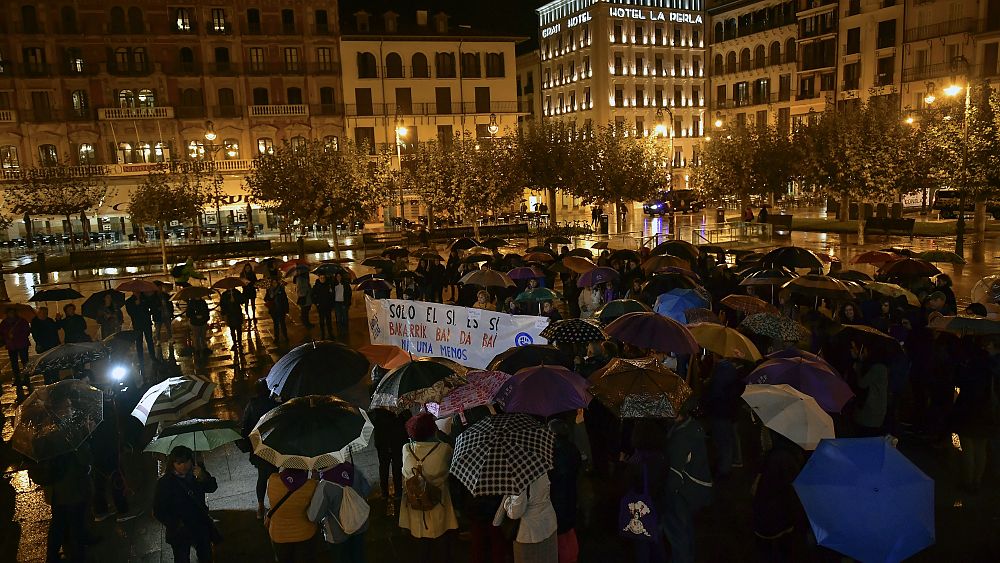
Spain’s debate for the “Only yes is yes” law has begun Friday in the Spanish Parliament in Madrid.
Following a proposal from the Ministry of Equality, the law would strengthen the country’s penal code against rape by requiring explicit consent for sex acts, a move long demanded by assault survivors and women’s rights groups.
The proposed law follows the notorious gang rape of a woman by five men in Pamplona in 2016 that shocked the country.
Known as “the wolf pack”, the five men were initially convicted of sexual abuse instead of the more serious offence of sexual assault, since the court found no proof that they had used physical violence.
The assault was filmed and showed the woman being silent and passive – a fact the judges interpreted as consent.
The measure will “make clear that silence or passivity do not mean consent, or that not showing opposition cannot be an excuse to act against the will of the other person,” said government spokeswoman Maria Jesus Montero.
The bill also qualifies forced marriage, genital mutilation and catcalling – sexually harassing a stranger in the street – as criminals offences for the first time. Work-related harassment will be punishable by jail penalties.
“The ‘Only yes is yes’ law will walk firmly behind the human rights alliance and the international feminist tide, spearheading a new generation of feminist rights that will change the future for women in Spain,” Minister for Equality, Irene Montero, said.
Although conservative and far-right movements expressed some concerns, they did not receive a lot of support from other members of the chamber.
Marta González Vázquez from the People’s Party raised concerns over the presumption of innocence, saying it was “an innovative move but one that carried undeniable risks, including the possible reversal of the evidence burden and the consequent reduction of the constitutional rights of the person being prosecuted.”
All groups will be able to present amendments to this bill.